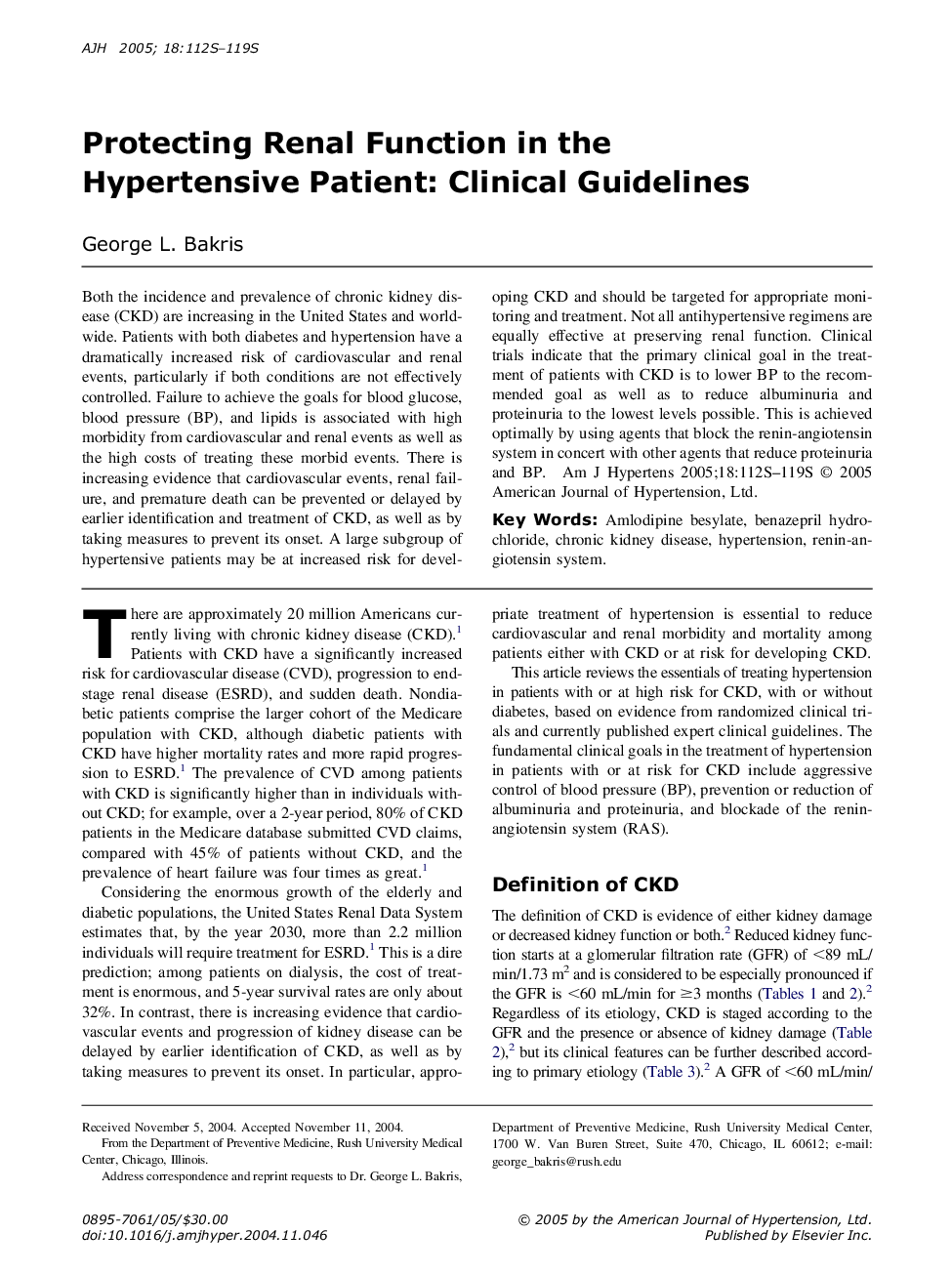| Article ID | Journal | Published Year | Pages | File Type |
|---|---|---|---|---|
| 9940966 | American Journal of Hypertension | 2005 | 8 Pages |
Abstract
Both the incidence and prevalence of chronic kidney disease (CKD) are increasing in the United States and worldwide. Patients with both diabetes and hypertension have a dramatically increased risk of cardiovascular and renal events, particularly if both conditions are not effectively controlled. Failure to achieve the goals for blood glucose, blood pressure (BP), and lipids is associated with high morbidity from cardiovascular and renal events as well as the high costs of treating these morbid events. There is increasing evidence that cardiovascular events, renal failure, and premature death can be prevented or delayed by earlier identification and treatment of CKD, as well as by taking measures to prevent its onset. A large subgroup of hypertensive patients may be at increased risk for developing CKD and should be targeted for appropriate monitoring and treatment. Not all antihypertensive regimens are equally effective at preserving renal function. Clinical trials indicate that the primary clinical goal in the treatment of patients with CKD is to lower BP to the recommended goal as well as to reduce albuminuria and proteinuria to the lowest levels possible. This is achieved optimally by using agents that block the renin-angiotensin system in concert with other agents that reduce proteinuria and BP.
Keywords
Related Topics
Health Sciences
Medicine and Dentistry
Cardiology and Cardiovascular Medicine
Authors
George L. Bakris,
